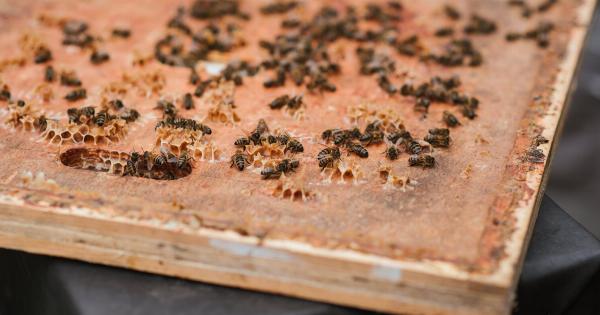Pregnancy is an exciting time for all women, but it also brings with it some unpleasant symptoms such as nausea, vomiting, and gas. Digestive problems such as gas can be quite distressing and uncomfortable during pregnancy.
Many women experience gas during pregnancy, and it can occur at any stage of pregnancy. This article will discuss the causes of gas during pregnancy and remedies to alleviate the discomfort.
What Causes Gas During Pregnancy?
Gas is caused by air that is swallowed or by digestion. During pregnancy, women experience an increase in hormones such as progesterone that relaxes the muscles in the digestive tract, leading to slow digestion.
Slow digestion allows more time for gas to build up in the intestines, leading to bloating and discomfort.
The growing uterus also puts pressure on the intestines, leading to increased gas production and constipation. Furthermore, women may experience food cravings and aversions that can lead to changes in their diet that cause gas.
Remedies for Gas During Pregnancy
There are several remedies that can help alleviate gas during pregnancy:.
1. Eat small, frequent meals
Eating small, frequent meals can help reduce gas production. Large meals can lead to indigestion and bloating, which can lead to gas. Eating smaller meals more frequently can help prevent gas from building up in the intestines.
2. Avoid foods that cause gas
Foods that are known to cause gas such as beans, cabbage, and onions should be avoided during pregnancy. Pregnant women should also avoid chewing gum, as it can cause them to swallow air.
3. Stay hydrated
Drinking plenty of water can help to flush out the digestive system and keep the digestive tract moving, reducing constipation and gas.
4. Exercise regularly
Exercise can help to stimulate the digestive system, increasing bowel movements and reducing gas. Pregnant women can engage in light exercises such as walking, swimming, and prenatal yoga.
5. Take prenatal vitamins
Prenatal vitamins contain iron, which can lead to constipation and gas. Pregnant women should choose prenatal vitamins that contain a lower dose of iron or speak to their doctor about alternative options.
6. Use over-the-counter remedies
Over-the-counter remedies such as simethicone can help to break up gas bubbles, reducing discomfort and bloating. Pregnant women should speak to their doctor before taking any medications during pregnancy.
7. Practice proper chewing and breathing techniques
Proper chewing and breathing techniques can help prevent swallowing air, reducing gas. Pregnant women should take their time while eating and make sure to chew their food properly.
They should also avoid talking while eating and instead focus on breathing.
8. Rest and relax
Resting and relaxing can help to ease digestive discomfort, reducing gas. Pregnant women should take time to rest and avoid stressful situations that can worsen digestive problems.
9. Try natural remedies
Natural remedies such as ginger tea and peppermint tea can help to ease digestion and reduce gas. Pregnant women should speak to their doctor before trying any natural remedies.
Conclusion
Gas during pregnancy can be quite distressing and uncomfortable. It is caused by slow digestion, pressure on the intestines, and changes in dietary habits.
Fortunately, there are several remedies that can help alleviate gas during pregnancy such as eating small, frequent meals, avoiding gas-producing foods, staying hydrated, exercising regularly, taking prenatal vitamins, using over-the-counter remedies, practicing proper chewing and breathing techniques, and trying natural remedies. Pregnant women should speak to their doctor before taking any medications or natural remedies.





























